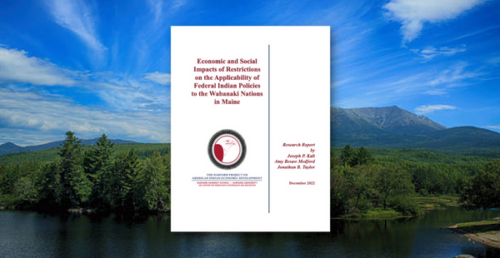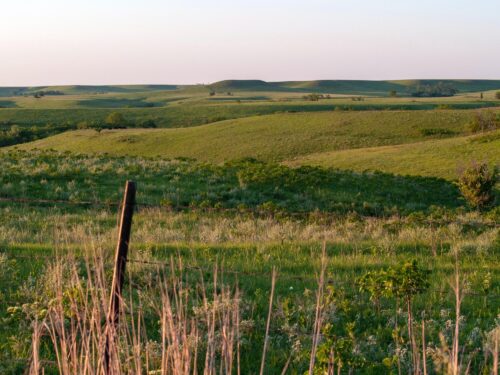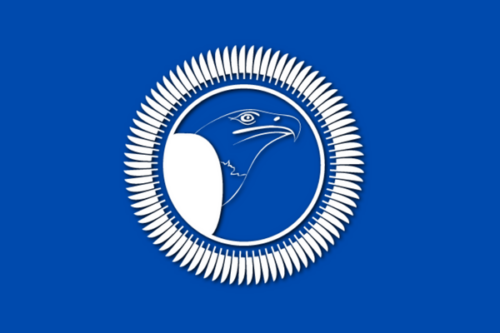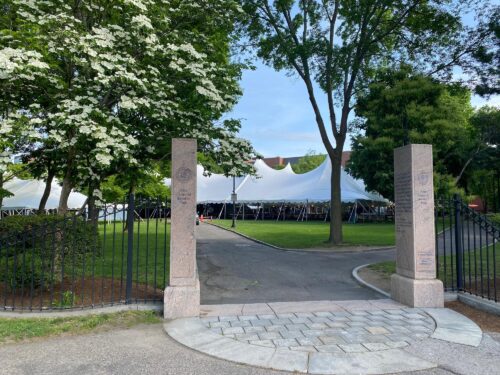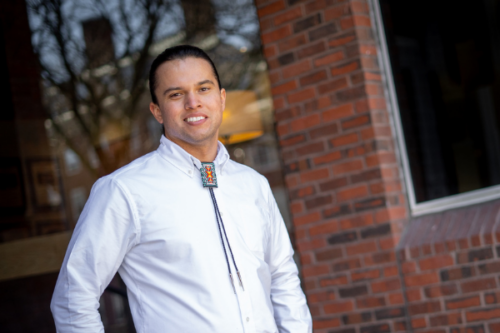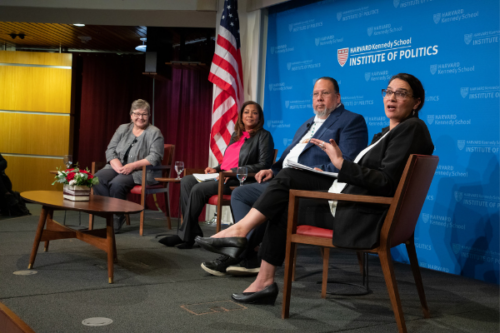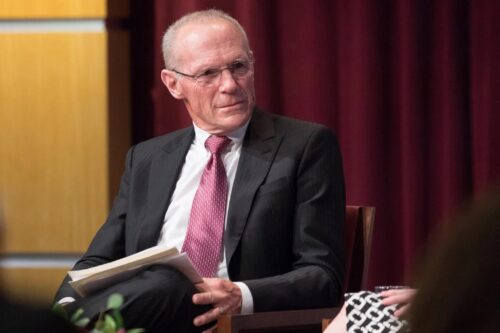
Joseph Kalt
Ford Foundation Professor of International Political Economy, Emeritus
Working to understand and foster the conditions for sustained, self-determined social and economic development among American Indian nations.
After decades of being shut out from resources that help communities achieve flourishing economies, societies, and educational opportunities, Native Nations are now undergoing a remarkable renaissance.
This resurgence is powered by a movement to exercise rights to self-determination on matters like government structure, natural resource management, economic development, health care, and social service provision.
The Project on Indigenous Governance at the Harvard Kennedy School is working alongside these Nations to deepen this movement by equipping Indigenous peoples with the tools they need to govern effectively and to strengthen their economic, social, and cultural fabrics.
Ford Foundation Professor of International Political Economy, Emeritus
Senior Program Director, Project on Indigenous Governance and Development; Director, Honoring Nations
Assistant Director, Outreach and Communications, Project on Indigenous Governance and Development
Assistant Director for the Honoring Nations program at the Project on Indigenous Governance and Development
Additional Resource
“The onset of tribal self-determination through self-government in the late 1980s ushered in the only policy that has ever worked to improve economic and social conditions in Indian Country.”
Media Release
A team of researchers from the Harvard Kennedy School today released a research report documenting the costs to the Wabanaki Nations in Maine and to Maine’s non-tribal citizens of the state’s being screened off from federal policies of Indian self-determination and self-governance.
Policy Brief
The subjugation of the Wabanaki Nation’s self-governing capacities is blocking economic development to the detriment of both tribal and nontribal citizens, alike.
Feature
Speaking at Harvard Kennedy School, landback movement leader Alvin Warren MC/MPA 2013 argues for the return of land to Indigenous communities
Media Release
Researchers from the Harvard Project on American Indian Economic Development (Harvard Project) released a policy brief outlining how to identify lands historically belonging to Indian nations that could be returned by the U.S. federal and state government—a process commonly referred to as landback.
Policy Brief
This policy brief showcases how geographic information system (GIS) techniques can be used to identify public and/or protected land in relation to current and historic reservation boundaries, and presents maps showcasing the scope of landback opportunities.
Feature
Harvard Project on American Indian Economic Development’s Megan Minoka Hill delivers land acknowledgment at 2022 Kennedy School diploma ceremony
Feature
Joel Chastain MC/MPA 2022 is taking lessons learned from the Chickasaw Nation and Harvard Kennedy School to promote tribal economic development.
Feature
Listening to and learning from people of color and Indigenous people is critical to tackling climate and racial injustice.
Feature
Patrick Lynch MC/MPA 2019 partnered with Indigenous filmmakers to tell the story of native sovereignty in Alaska.
Video
Six exceptional tribal programs were selected by the Harvard Project’s Honoring Nations Program as finalists for the prestigious 2021 awards in American Indian governance. At the heart of Honoring Nations is the principle that tribes themselves hold the key to generating social, political, cultural, and economic prosperity and that self-governance plays a crucial role in building and sustaining strong, healthy Indian nations.
2021’s outstanding finalists were:
Commentary
Through its latest round of awardees in the Honoring Nations program, the Harvard Project highlights how Indigenous people are tackling the challenges of (re)building healthy, vibrant nations.
Policy Brief
Media Release
Video
From setting tribal priorities to building infrastructure to managing and sustaining projects, the American Rescue Plan Act (ARPA) presents an unprecedented opportunity for the 574 federally recognized tribal nations to use their rights of sovereignty and self-government to strengthen their communities. As the tribes take on the challenges presented by the Act, the Ash Center’s Harvard Project on American Indian Economic Development hosted a series designed to assist tribes, to help tribes learn from each other and from a wide array of guest experts.
During this session, the seventh in the series, following a round of discussion between the panelists, a brief Q+A session was held to maximize the opportunities for audience participation.
This session, titled “Direct Relief for Tribal Citizens: Getting beyond Per Caps” featured:






